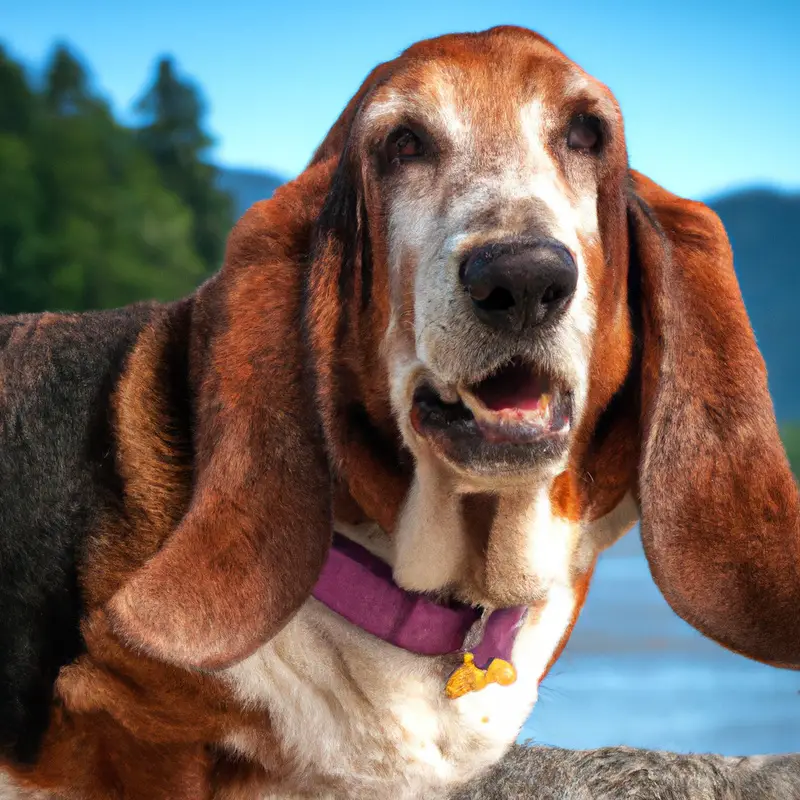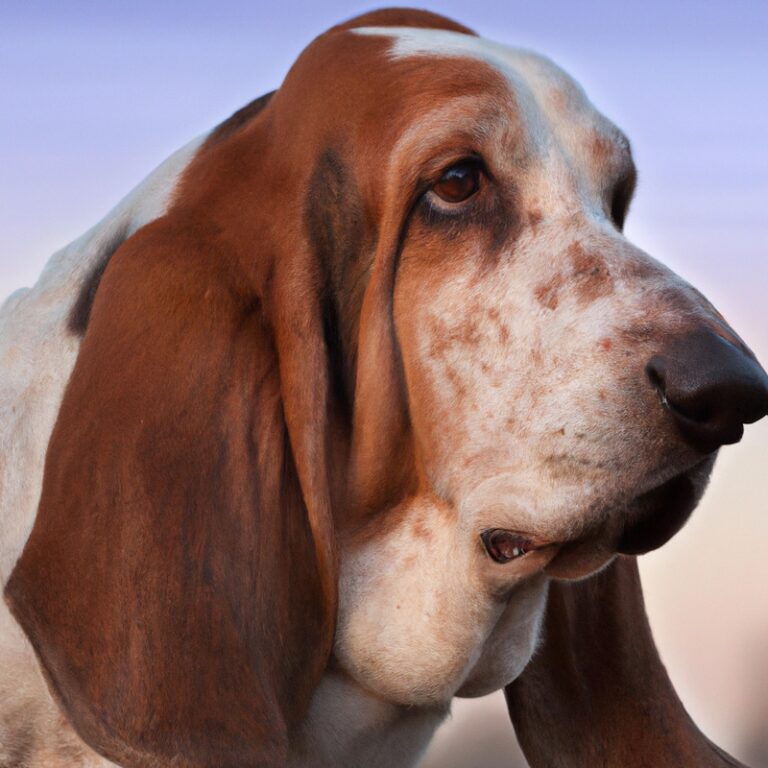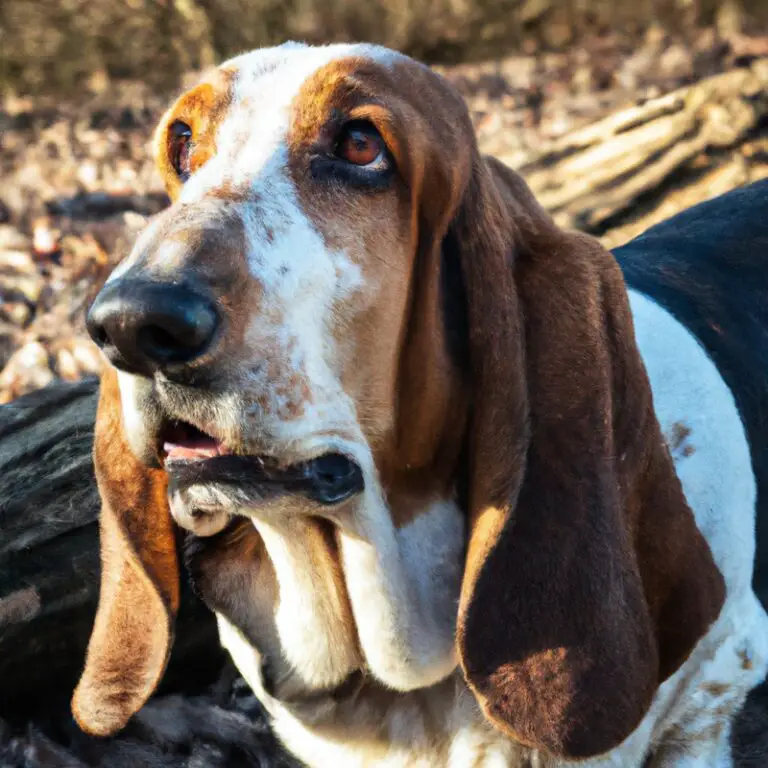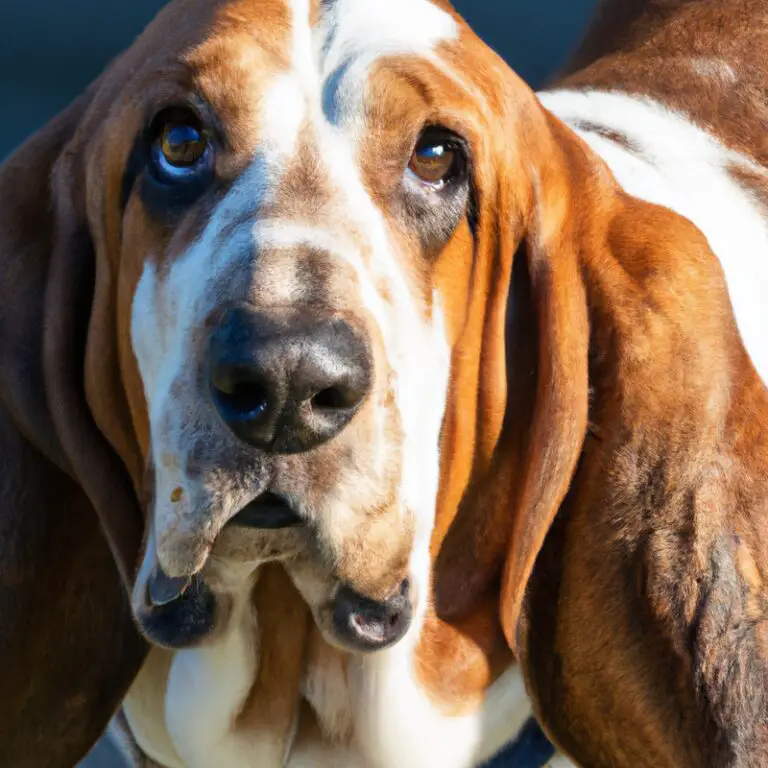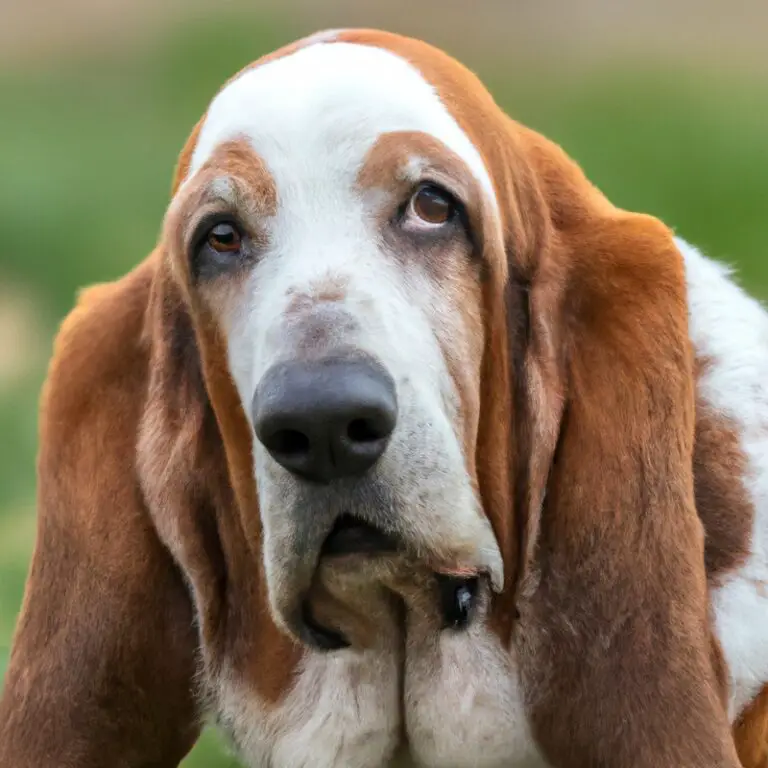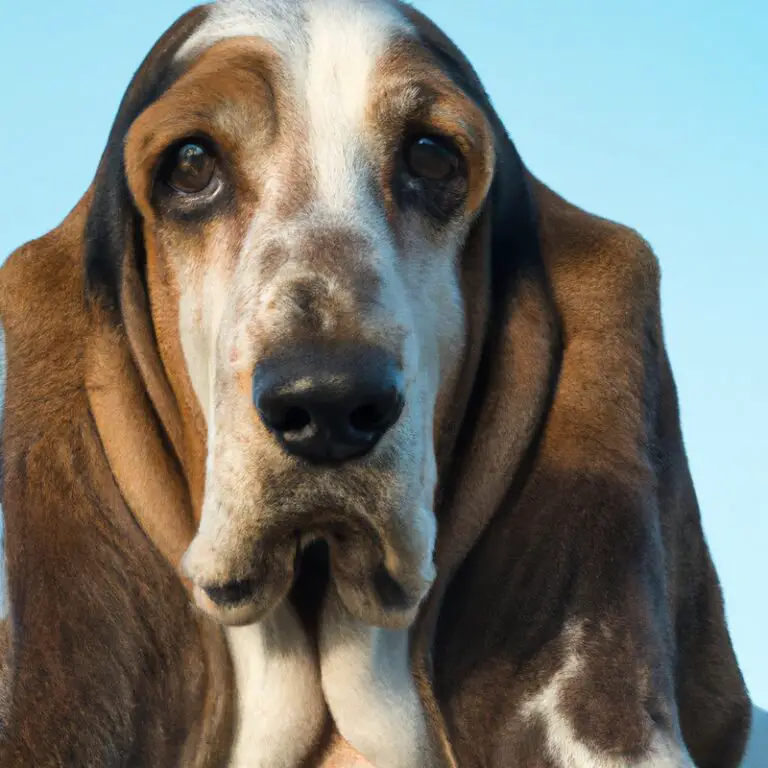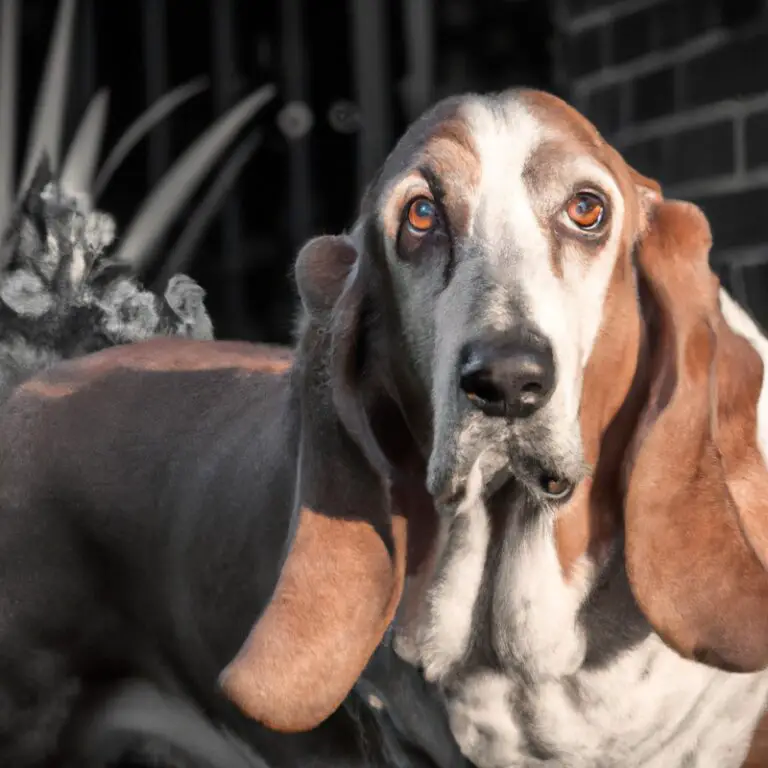Are Basset Hounds Prone To Excessive Snorting?
Key Takeaways:
- Basset Hounds are more prone to snorting compared to other dog breeds.
- The structure of their nasal passages and elongated soft palate contribute to excessive snorting.
- Basset Hound owners should be mindful of potential respiratory issues and seek veterinary care if necessary.
- Regular cleaning of their wrinkles and maintaining a healthy weight can help minimize snorting.
Have you ever heard a Basset Hound snort and wondered if it’s normal? Well, you’re not alone! As a dog lover and expert, I’ve spent countless hours studying the unique characteristics of different breeds, including the lovable Basset Hound.
In this article, we’ll dive into the fascinating world of Basset Hounds and their snorting tendencies.
We’ll explore the anatomy of their respiratory system, common causes for snorting, and whether or not excessive snorting is typical for this breed. So, grab a cup of coffee and let’s unravel the mystery behind those adorable snorts!
| Topic | Are Basset Hounds prone to excessive snorting? |
| Pros | Cons |
| Basset Hounds have a tendency to snort due to their unique anatomy. | Excessive snorting can be a sign of underlying health issues. |
| Basset Hounds are generally happy and content even with occasional snorting. | Excessive snorting may interfere with their breathing and quality of life. |
| Snorting can be entertaining and endearing for some people. | Excessive snorting can be loud and bothersome, especially during the night. |
What causes snorting in dogs?
Anatomy of a dog’s respiratory system
The respiratory system of a dog is responsible for their breathing. It consists of various parts that work together to facilitate the exchange of oxygen and carbon dioxide.
Here’s a brief overview of a dog’s respiratory system:
- Nasal cavity: The dog breathes in air through their nostrils, which leads to the nasal cavity. Inside the nasal cavity, the air is filtered, warmed, and humidified before it reaches the lungs.
- Trachea: Commonly known as the windpipe, the trachea is a tube that connects the nasal cavity to the lungs. It is made up of cartilage rings, which provide support and prevent collapsing.
- Bronchi: The trachea splits into two bronchi, which further divide into smaller bronchioles. These tubes carry air deep into the lungs.
- Lungs: The lungs are where the actual exchange of oxygen and carbon dioxide takes place. They are made up of millions of tiny air sacs called alveoli.
- Diaphragm: The diaphragm is a dome-shaped muscle located between the chest and abdomen. It plays a vital role in the breathing process by contracting and expanding, allowing the lungs to fill with air.
Understanding the anatomy of a dog’s respiratory system is important in recognizing any potential breathing issues they may have. If you notice any abnormalities or concerning symptoms, it’s best to consult a veterinarian for further evaluation.
Common causes of snorting in dogs
Snorting in dogs can have various causes, and it’s essential to understand them to address the issue effectively.
Some common causes of snorting in dogs include:
- Reverse Sneezing: This is a common respiratory condition characterized by sudden, rapid inhalations through the nose. It can happen when dogs get excited or inhale dust or other irritants.
- Nasal Congestion: Dogs may snort due to nasal congestion caused by allergies, sinus infections, or foreign objects in the nasal passages.
- Brachycephalic Airway Syndrome: Breeds with short muzzles, such as Bulldogs and Pugs, are prone to this condition. It causes difficulty breathing and can lead to snorting.
- Dental Problems: Dental issues, such as tooth decay or gum disease, can cause dogs to snort if they develop infections or inflammation in the oral cavity.
By identifying the underlying cause of your dog’s snorting, you can work with your veterinarian to develop an appropriate treatment plan and relieve any discomfort your furry friend may be experiencing.
Understanding Basset Hounds
Characteristics of Basset Hounds
Basset Hounds are known for their unique physical characteristics and charming personality traits.
With their long, droopy ears and short, stocky bodies, they have a distinct appearance that sets them apart.
Their gentle and friendly nature makes them wonderful family pets.
Bassets are generally calm and patient, but can be stubborn at times.
They are also known for their excellent sense of smell, which makes them great scent hounds.
Bassets require regular exercise to maintain a healthy weight, and their ears need special attention to prevent infections.
Common health issues in Basset Hounds
Basset Hounds are generally a healthy breed, but like any dog, they can be prone to certain health issues. Here are some common health problems that Basset Hounds may experience:
- Ear Infections: Basset Hounds have long, droopy ears that can trap moisture and bacteria, making them more susceptible to ear infections. Regular cleaning and proper ear care can help prevent these infections.
- Joint Problems: Basset Hounds have a heavy build, which puts extra stress on their joints. They are prone to conditions like hip dysplasia and arthritis. Maintaining a healthy weight and providing moderate exercise can help prevent joint issues.
- Back Problems: Basset Hounds have a long spine and short legs, which can put strain on their backs. They are at risk of developing intervertebral disc disease, which can cause pain and mobility issues. Avoiding activities that put strain on their backs can help prevent this condition.
- Obesity: Basset Hounds have a tendency to gain weight, which can lead to various health problems, including joint issues, heart disease, and diabetes. Feeding them a balanced diet and providing regular exercise is crucial for maintaining a healthy weight.
Remember, while these are common health issues in Basset Hounds, not all dogs will experience them. However, it’s important to monitor your Basset Hound closely and seek veterinary care if you notice any signs of illness or discomfort.
Regular check-ups with your vet can also help catch any potential health problems early on.
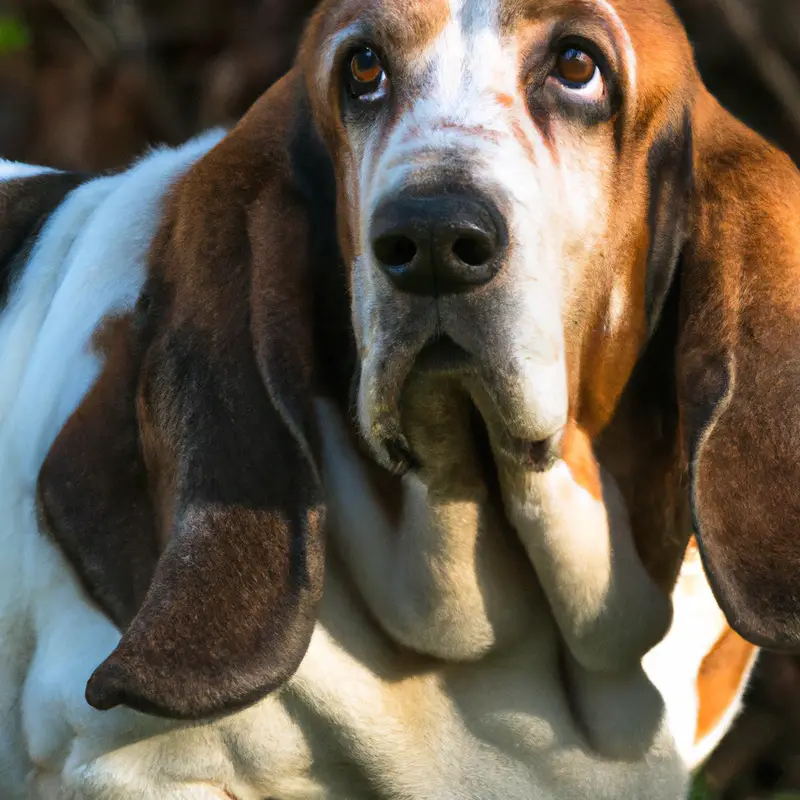
Snorting in Basset Hounds
Is excessive snorting normal in Basset Hounds?
Yes, excessive snorting can be normal in Basset Hounds.
due to their unique anatomy.
Their long ears and droopy facial skin can contribute to snorting, especially when they are excited or exercising.
Basset Hounds also have elongated soft palates, which can partially block their airways and lead to snorting.
However, it is essential to keep an eye on their snorting and consult with a veterinarian if it becomes severe or causes distress.
A vet can help determine if there are any underlying health issues contributing to the excessive snorting.
Possible reasons for excessive snorting in Basset Hounds
Excessive snorting in Basset Hounds can be due to a few possible reasons. One common cause is their long, droopy ears, which can obstruct airflow and lead to snorting.
Basset Hounds are also prone to respiratory issues such as allergies, infections, and nasal polyps, which can further contribute to snorting.
Additionally, their short snouts and elongated soft palates can cause breathing difficulties and snorting sounds. It’s important to monitor their snorting and consult a veterinarian if it becomes excessive or if your Basset Hound shows signs of distress.
Managing snorting in Basset Hounds
When to seek veterinary help
If your Basset Hound is experiencing excessive snorting, it’s important to seek veterinary help.
Don’t brush it off as a normal behavior, as it could be a sign of an underlying health issue.
Reach out to your vet if your Basset Hound’s snorting is persistent, severe, or accompanied by other concerning symptoms such as difficulty breathing or coughing.
They can conduct a thorough examination and provide appropriate treatment or further diagnostic tests if needed.
Remember, it’s always better to be safe and have a professional evaluate your pet’s health.
Tips for reducing snorting in Basset Hounds
To help reduce snorting in Basset Hounds, there are a few things you can try. Firstly, make sure your Basset Hound maintains a healthy weight, as excess weight can put pressure on their respiratory system.
Secondly, avoid exposing your dog to environmental triggers such as dust, smoke, strong scents, or extreme temperatures.
Thirdly, keeping your dog’s living space clean and dust-free can also help alleviate snorting. Lastly, regular exercise and physical activity can help improve your Basset Hound’s overall respiratory health.
Remember, if the snorting persists or worsens, it’s always best to consult with your veterinarian for further guidance.
Proper care for Basset Hounds with snorting issues
If your Basset Hound is experiencing snorting issues, there are a few ways you can provide proper care for them.
Here are some tips:
- Maintain a healthy weight: Obesity can worsen snorting problems in Basset Hounds, so make sure your dog is at a healthy weight through exercise and a balanced diet.
- Use a humidifier: Dry air can irritate the respiratory system, so using a humidifier in your home can help alleviate snorting symptoms.
- Avoid irritants: Keep your Basset Hound away from smoke, harsh chemicals, and allergens that can worsen their snorting.
- Regular vet check-ups: Schedule regular check-ups with your veterinarian to monitor your Basset Hound’s respiratory health and address any underlying issues contributing to snorting.
Remember, each Basset Hound is unique, so it’s important to consult with your veterinarian to establish a care plan tailored to your dog’s specific needs.
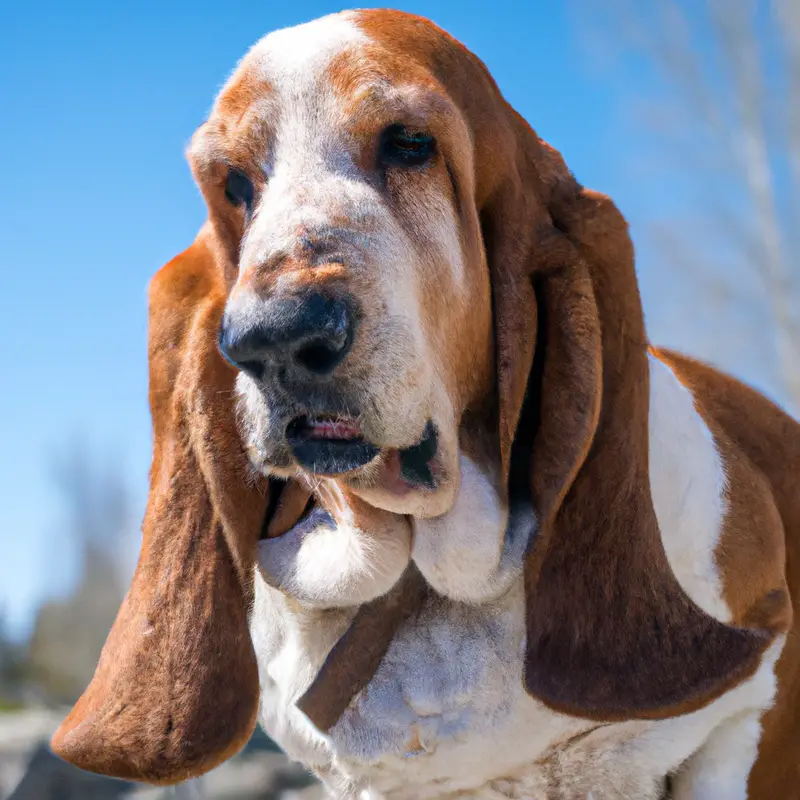
Final Verdict
Basset Hounds are indeed prone to excessive snorting due to a combination of their breed characteristics and potential health issues. Their long ears and droopy skin can cause airway obstruction, leading to snorting.
However, it’s important to distinguish between normal snorting and excessive snorting that may indicate a health problem.
Regular veterinary check-ups, proper care, and minimizing environmental triggers can help manage snorting in Basset Hounds. Remember, if you notice any concerning symptoms or if the snorting becomes severe, it’s crucial to seek veterinary help.
Overall, understanding and addressing the specific needs of Basset Hounds can help ensure their well-being and minimize their snorting issues.

